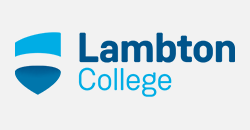Instrumentation & Control Engineering Technology - Industrial Automation

Degree:Advanced Diploma
Program Overview:
Students who enjoy hands-on automation and process control will appreciate the strong training and technical foundational provided in the Instrumentation & Control Engineering Technology program.
Instrumentation, final control elements and process computer control systems in any manufacturing process environment are broken down into sequential logical steps, analyzed, and control is implemented. In industry, measured variables are then monitored and controlled. Examples of these variables include pressure, flow, temperature, level, motion, force, and chemical composition.
Topics of study include signal conditioning, transmitters, analyzers, controllers, control systems, and final control elements such as control valves, dampers, and electric motors. These are components of automated control loops. Typical process industries that utilize this technology include petrochemicals, pharmaceuticals, food processing, pulp and paper, automotive, and mining. Alongside the maintenance requirements of these industries, there are other career options available, including engineering, sales, and service providers or maintainers.
Students enrolled in this program train in the Centre of Excellence in Energy & Bio-Industrial Technologies. This centre offers state-of-practice technology laboratories and infrastructure to support learning and research in next-generation technologies in collaboration with industry. Numerous hands-on labs are designed to enable participants to install, configure, calibrate, troubleshoot, and maintain instruments (pneumatic, analog, digital) and control systems in a variety of industrial-replicated settings.
Admission Requirements:
IELTS of 6.5 with no band lower than 6.0
GPA: 2.4 or above
PTE: No band below 60
Tuition Fee: Click Here
Career Outlook:
Our graduates find employment in a wide variety of areas in the instrumentation and control fields. Technologist opportunities for employment exist in the chemical, petroleum refining, food processing, automotive manufacturing, steel production, and pulp and paper industries. Typical positions include: process analyzer specialist, instrument designer, control systems technologist, instrument technologist, instrument technician, and process control.
Program Intake: September
For More Details Visit Us.